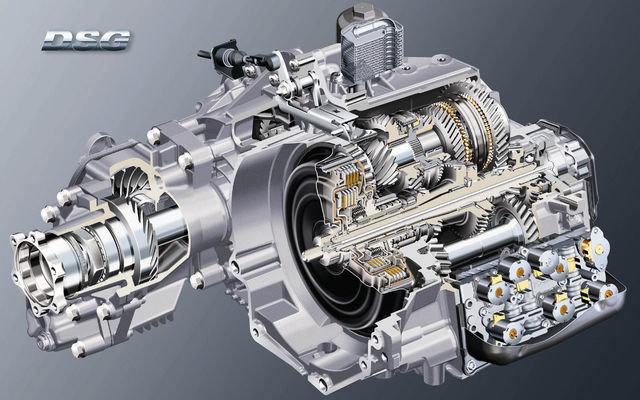Switching to electric sounds appealing on paper: zero gasoline, lower maintenance, attractive incentives, etc. But what are the actual costs once you take everything into consideration?
At a Glance
The monthly cost of an electric vehicle varies based on several factors: the type of vehicle, mileage, home charging versus public charging stations, maintenance, insurance, etc. In Quebec, the overall budget typically falls between approximately $550 and $950 per month, all-inclusive.
In this article, we break down monthly expenses related to an electric vehicle in detail to help you plan your budget and make an informed decision.
What are the Monthly Expenses Associated with an Electric Vehicle?
Monthly Vehicle Payment
The average price of a new electric vehicle in Quebec can be quite high, especially for better-equipped models. Here are two possible scenarios with a 2025 VW ID.4:
- 2025 VW ID.4 new (price: $66,000): financed over 84 months at 6.9% = approximately $990/month
- 2021 VW ID.4 used (price: $32,000): financed over 60 months at 7% = approximately $634/month.
Incentives: Thanks to federal ($5,000) and provincial ($4,000) programs, several models have become much more accessible. For example, the new VW ID.4 can benefit from a total rebate of $9,000, reducing the monthly payment by about $135.
Electric Vehicles and Car Insurance
Insurance costs for an electric vehicle vary based on several factors: driver's age, driving record, type of vehicle, place of residence, etc. In general, premiums for electric vehicles are 10 to 15% higher than for comparable gasoline vehicle models, especially due to the cost of electronic components and the higher value for a new EV.
That said, several insurers offer eco-friendly discounts, which can offset this increase, particularly for those with clean driving records.
Home Charging Costs
Hydro-Québec's residential rate is currently $0.1029/kWh. An electric vehicle typically uses 18 kWh/100 km.
Let's take the ID.Buzz as an example, with a range of 420 km and a 77 kWh battery:
Driving 1,500 km per month, including a 20% loss margin, will cost approximately $33.50/month.
Fuel vs. Electricity: A Detailed Comparison
For a compact gasoline SUV that consumes 8.5 L/100 km, for example, driving 1,500 km per month at $1.75/L, will represent a cost of around $223.13/month.
Result: Monthly savings of approximately $190 with an electric vehicle.
How Does Winter Affect your Electricity Bill?
Cold temperatures can reduce the range of an EV by about 15 to 30% depending on the model. This means:
- More charging sessions = increased monthly cost (approximately an extra $10 to $20)
- Greater use of the heating system (pump or resistors)
Public Charging Stations: What to Expect?
| Type of station |
Average rate |
Time required |
Recommended use |
| Level 2 (240V) |
$1 to $3/hour |
4 to 8 hours |
Work / shopping centre |
| Level 3 (DC fast) |
$0.40 to $0.55/min |
20 to 40 minutes |
Travel, emergencies |
| Type of station |
Average rate |
Time required |
Recommended use |
| Level 2 (240V) |
$1 to $3/hour |
4 to 8 hours |
Work / shopping centre |
| Level 3 (DC fast) |
$0.40 to $0.55/min |
20 to 40 minutes |
Travel, emergencies |
For an urban driver with 80% of charging done at home, expect about $10 to $20/month for public station usage. For heavy users (long trips), this can climb to $60 to $80/month.
Maintenance: Potential Savings?
One of the major advantages of electric vehicles lies in the simplicity of their mechanics. Unlike gasoline cars that require regular oil changes, filter replacements, belt changes, engine oil, or spark plug replacements, an electric vehicle contains far fewer parts.
The result: the maintenance for electric vehicles is simplified and the annual maintenance costs are considerably reduced:
- Use of brakes is reduced by about 50% thanks to regenerative braking
- Fewer fluids to check
- Tires, windshield wipers, filters remain the primary maintenance items
According to CAA Québec, you can expect roughly $200 per year in maintenance, which translates to about $16.67/month. On average, this represents a monthly saving of $30 to $50, compared to fuel vehicles, depending on the model and usage. Over several years, this difference becomes significant in the overall cost of ownership.
Other Costs to Consider
Installing a Home Charging Station
- Level 2 charging station: between $750 and $1,200
- Installation by an electrician: between $500 and $1,000
- Total: approximately $1,500 to $2,000
Amortization of costs over 5 years = about $25 to $35/month.
The Roulez Vert program offers an incentive of up to $600 for the charging station and the installation.
Registration, Permits and Taxes
Possible advantages in Quebec include:
- a 50% reduction on the specific tax for EVs priced under $60,000
- No penalty for CO₂ emissions
- Free parking in some cities (e.g., Montreal, Laval)
Registration costs roughly $125/year, or about $10.42/month.
Comparison: Electric Vehicle vs. Fuel Vehicle, Monthly Costs
Average of 2,000 km/Month
| Description |
Electric vehicle |
Gasoline vehicle |
| Insurance |
$100 |
$85 |
| Charging / gasoline |
$45 |
$290 |
| Maintenance |
$15 |
$55 |
| Total |
$160 |
$430 |
| Description |
Electric vehicle |
Gasoline vehicle |
| Insurance |
$100 |
$85 |
| Charging / gasoline |
$45 |
$290 |
| Maintenance |
$15 |
$55 |
| Total |
$160 |
$430 |
What About Vehicle Depreciation?
Depreciation ‒ the loss of value for a vehicle over time‒ remains an important factor when considering the real monthly cost of an electric vehicle. While some high-end models retain their value fairly well, particularly due to rapid advances in battery technology, most EVs experience sharper depreciation than gasoline vehicles.
However, this trend has started to stabilize since 2023, as demand for used models has increased and modern batteries demonstrate greater durability. In comparison, gasoline vehicles retain their value slightly better in the short term, but may see a steeper decline in the medium term as electrification becomes the norm.
Our Opinion: Is it Really Cost-Effective on a Monthly Basis?
Yes! The more you drive, the more appealing an EV becomes given the monthly savings.
Who Benefits Most from Electric Vehicles?
- Urban or suburban drivers
- Those who drive more than 1,000 km/month
- Owners with access to a home-charging station
- Those looking to reduce long-term maintenance costs
Frequently Asked Questions (FAQ)
- Does an electric vehicle really cost less per month than a gasoline vehicle?
Yes, in most cases. The savings on gasoline and maintenance more than compensate for a sometimes higher monthly payment, especially if you charge at home.
- Do you need to replace an electric vehicle's battery often?
No. Modern batteries are designed to last between 8 and 15 years, depending on usage. Most manufacturers offer warranties for 160,000 km or more on the battery.
- What is the average cost of home charging in Quebec?
Charging a typical EV at home costs between $2 and $4 per full charge, depending on the model and Hydro-Québec rates. This works out to about $25 - $40 per month for normal usage.
- Are electric vehicles more expensive to insure?
They can be slightly more expensive due to the vehicle's value and the cost of certain repairs, but the difference is often minimal if you shop around for your insurance.
- Is an EV cost-effective even if I drive only a few kilometers?
Yes, especially if you charge at home. The low maintenance costs and gasoline savings apply even with low mileage, though the payback period for depreciation may be longer.












